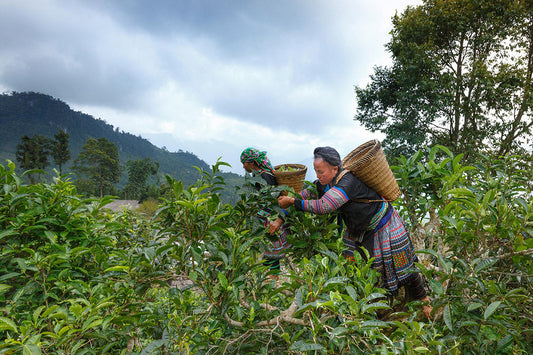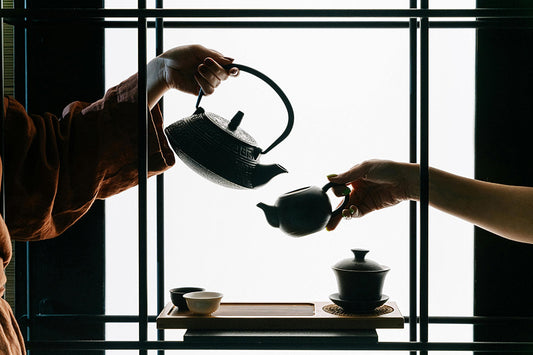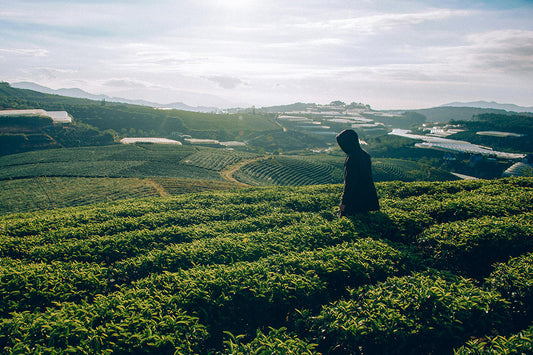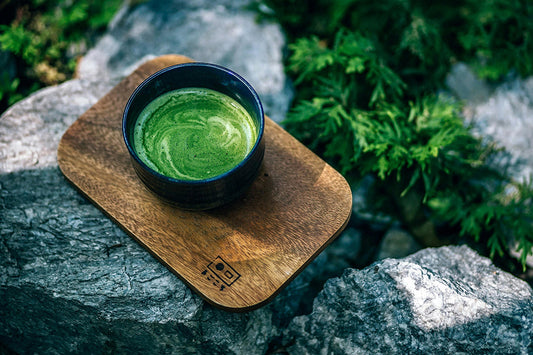Tea is one of the most beloved beverages worldwide, appreciated not only for its soothing flavors and cultural significance, but also for its stimulating effects. One question that tea drinkers — both novice and seasoned — often ask is: Does tea contain caffeine? The short answer is yes, most tea contains caffeine. But the full story is much more nuanced.
In this blog, we’ll explore how much caffeine is in different types of tea, what factors influence caffeine levels, and how tea’s caffeine content compares to that of coffee. We’ll also look into the health effects of tea caffeine and what options are available for those who want to cut back.
What is Caffeine?
Caffeine is a natural stimulant most commonly found in tea leaves, coffee beans, cacao pods, and certain other plants. It stimulates the central nervous system, helping people feel more awake and alert.
In moderation, caffeine can increase concentration, boost mood, and improve athletic performance. However, too much can lead to restlessness, insomnia, rapid heartbeat, or anxiety in sensitive individuals.
How Caffeine Ends Up in Tea
All traditional teas — black, green, oolong, white, yellow, and pu-erh — come from the same plant: Camellia sinensis. The caffeine present in tea is a naturally occurring compound that serves as a defense mechanism for the plant, deterring insects and other herbivores.
Contrary to popular belief, caffeine is not “added” during processing; it is already present in the tea leaves. However, processing can influence the final amount of caffeine that ends up in your cup, as can brewing time and water temperature.

How Much Caffeine is in Tea?
The caffeine content in tea can vary widely depending on the type of tea, leaf size, processing method, and how the tea is brewed. Below is a general guide to caffeine content in an 240 ml (8 oz) cup of tea:
| Tea Type | Average Caffeine Content |
|---|---|
| Black Tea | 40–70 mg |
| Green Tea | 20–45 mg |
| Oolong Tea | 30–50 mg |
| White Tea | 15–30 mg |
| Pu-erh Tea | 30–70 mg |
| Yellow Tea | 25–50 mg |
| Matcha | 60–80 mg (per cup) |
| Decaffeinated | 2–5 mg |
| Herbal Tea | 0 mg |
Matcha Exception
Matcha is a powdered green tea made from whole ground leaves, meaning you consume the entire leaf rather than an infusion. As a result, its caffeine content is much higher than regular green tea.
Tea vs. Coffee: Which Has More Caffeine?
In general, coffee contains significantly more caffeine than tea. An 240ml cup of brewed coffee contains between 90 and 120 mg of caffeine, depending on the bean and brewing method. In contrast, most teas contain between 15 and 70 mg of caffeine per cup.
However, tea offers a gentler, more gradual stimulation than coffee. This is largely due to L-theanine, an amino acid found in tea that promotes relaxation without drowsiness. When combined with caffeine, L-theanine can enhance focus and cognitive performance without the jitteriness associated with coffee.
Factors Affecting Caffeine Levels in Tea
Several variables influence how much caffeine ends up in your cup:
1. Type of Tea Plant
There are two main varieties of the tea plant: Camellia sinensis var. sinensis and Camellia sinensis var. assamica. The assamica variety tends to have more caffeine.
2. Harvest Time
Young tea leaves and buds (often used in white and green teas) can contain more caffeine than older, mature leaves.
3. Processing
Fermentation and oxidation processes used in making black and oolong teas can slightly influence caffeine content, but not dramatically. Matcha, which uses the entire leaf, has one of the highest caffeine contents.
4. Leaf Size
Finely ground tea leaves (such as those in tea bags) infuse faster and can release more caffeine quickly than whole leaf teas.
5. Brewing Time and Temperature
The longer the steeping time and the hotter the water, the more caffeine is extracted from the tea leaves. For example, brewing green tea for 1 minute releases much less caffeine than brewing for 5 minutes.

What About Decaffeinated Tea?
Decaffeinated teas undergo a process to remove most of the caffeine. While they are not 100% caffeine-free, they typically contain 2–5 mg per cup — a negligible amount for most people. Decaf black and green teas are widely available, and some premium brands also offer decaf oolong or white teas.
Herbal Tea: A Naturally Caffeine-Free Option
Unlike traditional teas, herbal teas (also called tisanes) are not made from the Camellia sinensis plant. They are made from herbs, flowers, roots, or fruit peels and include varieties like chamomile, rooibos, peppermint, hibiscus, and lemongrass.
Most herbal teas are naturally caffeine-free, making them an excellent choice for evening relaxation or for those with caffeine sensitivity.
Is Tea Caffeine Better Than Coffee Caffeine?
The stimulating effects of tea caffeine tend to be milder and longer-lasting. This is due to the presence of L-theanine, which modulates the absorption of caffeine and creates a more balanced experience.
Many tea drinkers report improved mental clarity, calm alertness, and reduced crash or jitter effects compared to coffee.
Health Effects of Tea Caffeine
Moderate tea consumption — even caffeinated — is generally considered healthy for most individuals. Some benefits include:
-
Enhanced focus and concentration
-
Improved mood and alertness
-
Antioxidant properties (especially in green tea)
-
May reduce the risk of certain chronic diseases
However, individuals who are sensitive to caffeine or pregnant women should monitor their intake. It's always best to consult a healthcare professional if unsure.
Tips for Managing Tea Caffeine Intake
If you're looking to reduce your caffeine intake but still enjoy tea, here are a few tips:
-
Choose white or herbal teas which naturally have less or no caffeine.
-
Brew for a shorter time to reduce caffeine extraction.
-
Use fewer tea leaves per cup.
-
Opt for decaffeinated versions of your favorite teas.
You can also explore blends with calming herbs like lavender, valerian, or chamomile to complement low-caffeine teas.
Final Thoughts
So, does tea contain caffeine? Absolutely — but it varies widely depending on the type, processing, and preparation. Unlike coffee, tea offers a more balanced and nuanced caffeine experience, often favored for its calming focus and reduced side effects.
Whether you’re looking for a pick-me-up or a moment of calm, there’s a tea that fits your needs. Understanding how caffeine functions in tea empowers you to make informed choices — one soothing cup at a time.






